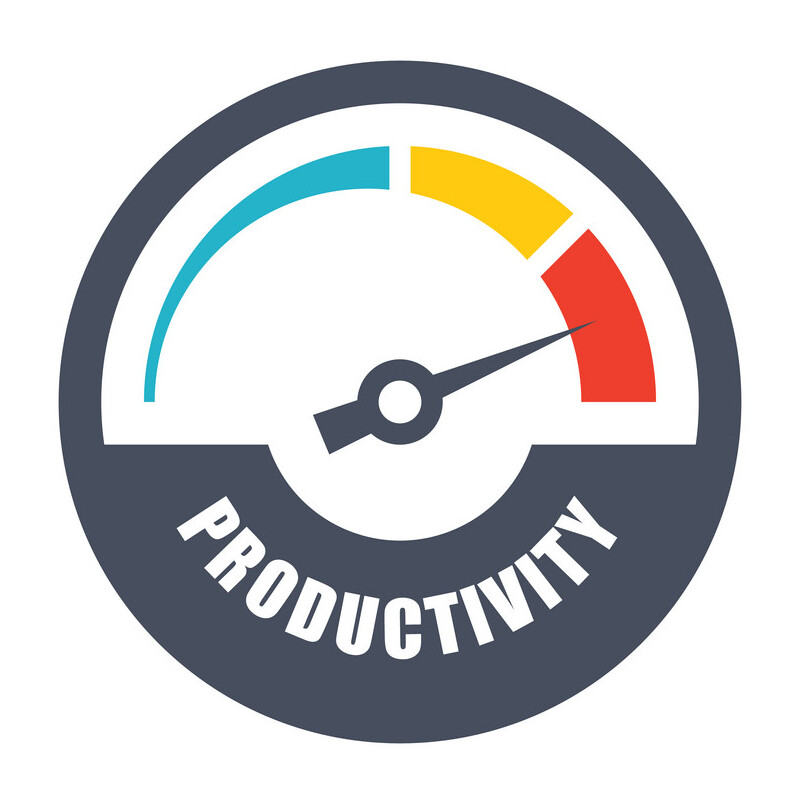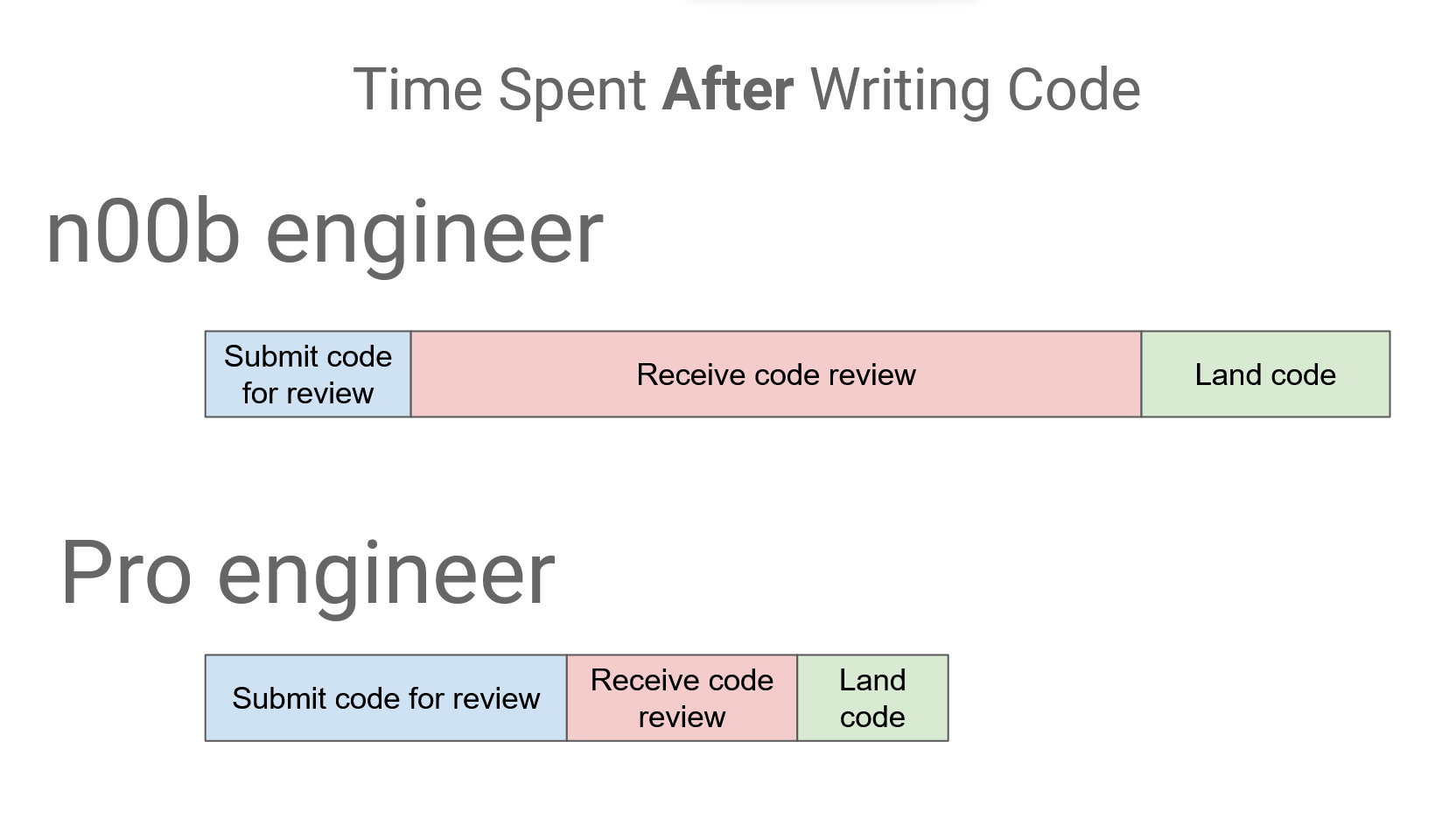
Productivity Q&A and Videos
About Productivity
How can I have less burnout and better work-life balance?
Mid-Level Software Engineer [E4] at Meta
I work overtime a lot, and it's pretty stressful. I'm also worried that amidst all this effort working for Meta, I'll lose track of who I am overall and what I can do for other companies. What can I do to strike a better balance here?
Show more
Posted 3 years ago
5.7K Views
3 Comments
Learn About Productivity
Productivity is very important for a software engineers because it can greatly affect your career trajectory. Software engineers who can consistently deliver high-quality work within a defined timeframe can position themselves for faster career advancement. When you can execute tasks quickly, you build a track record of reliability.
When you can meet project milestones, it shows that you can manage your time effectively. When you are productive by optimizing your time, you’ll be contributing to the success of your team.
A strong flow state and ability to context switch are key components of productivity. If you can achieve a flow state, you can significantly increase your speed and efficiency. This is very helpful when you are dealing with a calendar filled with meetings.
You should also be able to manage meetings effectively. This involves not attending unnecessary meetings. It also means consolidating similar meetings to create more focused blocks of time for yourself. If your daily schedule has too many meetings, you run the chance of not being able to get any work done.
When you are in a meeting, you should make sure to follow certain guidelines to make the meeting as productive as possible for everyone involved. Make sure that a clear and detailed agenda is set for the meeting. You should share the agenda with all of the meeting attendees in advance so each of the attendees knows about the context behind the meeting. You should also remind people about the agenda document by pinging people in your company’s communication channels, like Slack or email. Make sure the meetings actually follow the agenda and give everyone in the meeting the opportunity to speak. This will lead to an inclusive environment where everyone is heard.
You also have to be aware of your own mental state to avoid burnout. It’s important to communicate with your manager and tech lead about project timelines and priorities to manage your workload and prevent burnout. Just because you can execute on the work doesn’t mean you are delivering the most meaningful work. Always be prioritizing with your stakeholders to make sure you are meeting the most important goals of your customers
Show more
Explore Jobs By LevelEntry-Level Software Engineer JobsMid-Level Software Engineer JobsSenior Software Engineer JobsStaff Software Engineer Jobs
Explore TrendingLayoffsPerformance Improvement PlanSystem DesignInterpersonal CommunicationTech Lead
Explore Job InternshipsSoftware Engineering InternshipsGoogle InternshipsMeta InternshipsAmazon InternshipsApple InternshipsTesla InternshipsMicrosoft Internships

![Maximize Your Productivity As A Software Engineer [Part 1] - How This Course Works](/_next/image/?url=https%3A%2F%2Ffirebasestorage.googleapis.com%2Fv0%2Fb%2Ftech-career-growth.appspot.com%2Fo%2Flesson_thumbnails%252F1720647853-image.jpg%3Falt%3Dmedia%26token%3D6fbac10b-0daf-401f-adf7-78ac46dd22f3&w=1920&q=75)
![[Masterclass] How To Write Better Code Faster As A Software Engineer](/_next/image/?url=https%3A%2F%2Ffirebasestorage.googleapis.com%2Fv0%2Fb%2Ftech-career-growth.appspot.com%2Fo%2FTechCareerGrowthSessions%252F2022_11_19_code_machine_session_thumbnail.png%3Falt%3Dmedia%26token%3Dcf67f9ff-f251-4f11-b107-07a1aceae450&w=1920&q=75)
![Maximize Your Productivity As A Software Engineer [Part 3] - Finding The Best Things To Work On](/_next/image/?url=https%3A%2F%2Ffirebasestorage.googleapis.com%2Fv0%2Fb%2Ftech-career-growth.appspot.com%2Fo%2Flesson_thumbnails%252F1720648488-image.jpg%3Falt%3Dmedia%26token%3Dae667b11-ef00-4dd7-8068-0e04acc62acc&w=1920&q=75)

![Nail Your Promotion As A Software Engineer [Part 3] - The Key To Understanding Promotion](/_next/image/?url=https%3A%2F%2Ffirebasestorage.googleapis.com%2Fv0%2Fb%2Ftech-career-growth.appspot.com%2Fo%2Fthumbnails%252F1712771437-Screenshot%25202024-04-10%2520at%252010.50.05%25E2%2580%25AFAM.png%3Falt%3Dmedia%26token%3Dc78da5b1-8578-4d59-aa6a-4268f480a91e&w=1920&q=75)
![Ace Your Tech Interview As A Software Engineer [Part 4] - The #1 Trait For Interview Success](/_next/image/?url=https%3A%2F%2Ffirebasestorage.googleapis.com%2Fv0%2Fb%2Ftech-career-growth.appspot.com%2Fo%2Fthumbnails%252F1709934541-Screenshot%25202024-03-08%2520at%25201.48.27%25E2%2580%25AFPM.png%3Falt%3Dmedia%26token%3D60b7b118-1397-4822-80fc-40cf39c6308c&w=1920&q=75)






![Maximize Your Productivity As A Software Engineer [Part 2] - The Productivity Giant You Are Missing](/_next/image/?url=https%3A%2F%2Ffirebasestorage.googleapis.com%2Fv0%2Fb%2Ftech-career-growth.appspot.com%2Fo%2Flesson_thumbnails%252F1720648346-image.jpg%3Falt%3Dmedia%26token%3D7b54ebd4-d432-40e7-9723-81e0467fd79d&w=1920&q=75)